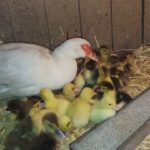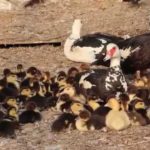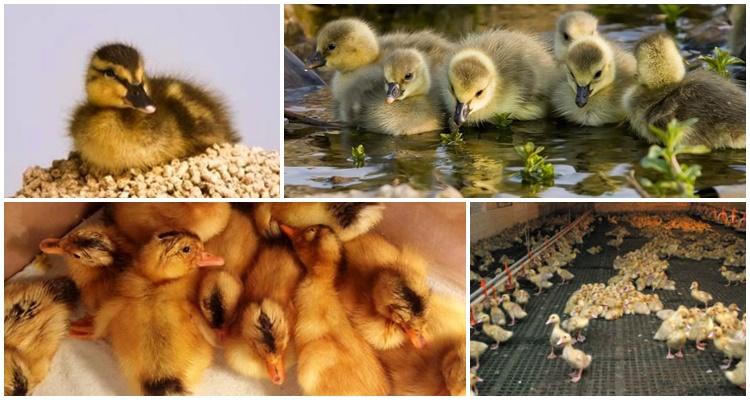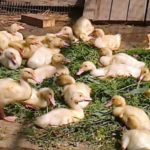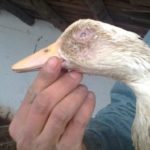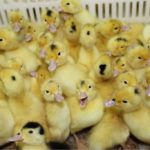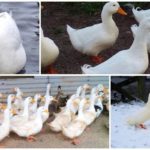Duck meat is unusually tender and aromatic. Ducks are unpretentious in food and care. Unlike chickens, ducklings have a low mortality rate. These reasons are enough to recommend even novice bird breeders to raise these easy-going birds. Ducks lay eggs rarely. Therefore, many owners buy additional baby ducklings for their brood in an incubator or at the market. The question becomes relevant: will a duck at home accept other people’s ducklings as their own?
Will a wild duck accept someone else's duckling?
The main motive for the actions of animals is physical necessity, ensuring the survival of themselves and their offspring.
Lifestyle of ducks in nature
All species of ducks nest on the ground. Set up a warm place to make it easier to warm the eggs for 26-31 days. They build a nest from grass and their own down, sometimes first digging a small hole in the ground. The female lays up to 12 eggs in April-May. The ducklings hatch wet due to the remnants of their development environment and must dry out under the mother’s belly for about 3 hours. From the very beginning, babies can walk and swim.
Living next to a pond or swamp, the chicks, together with the duck, constantly swim and dive, getting food for themselves. After water procedures, they strive to dry off as quickly as possible, each time using their mother’s warmth. But the duck also cooled down in the water, despite the life-saving lubrication with its fat from the gland at the base of the tail.
Other people's children
Ducks often live in colonies. If a duck has very few eggs, a more fertile female can throw hers into her nest. Babies cling to their mother for less than 2 months. When a duck feels that she is having difficulty keeping her brood warm, she drives away other ducklings. If few chicks were born or some of them died, small ducklings can be adopted into the family.
Can a mother abandon her ducklings?
In domestic birds, natural instincts are weakened or impaired. And the duck may suddenly get up from the nest. Therefore, expectant mothers need to be looked after. If there are several brood ducks on the farm, the question “What to do?” does not arise. The thrown eggs are quickly distributed among them.
A mother hen can also help out. After birth, the ducklings will have to be kept separately.If the babies hatched safely under the duck, she will not abandon them, but will carefully teach them to eat different food, thoroughly rinsing it in water. If a bird is allowed into the river, it will teach it to dive.
Can ducklings survive without a duck?
The chicks are more comfortable and calm with their mother. But raising ducklings is not difficult even without an adult bird looking after them. All care will be provided by a person.
To do this, for the first 2 weeks, babies are kept in a cardboard box at a temperature of 26-28 °C.
Feeding
When feeding for the first time, ducklings need to be attracted to food. Usually the first portion is forced into the beak of at least a few newborns. Then they tap their finger near the food to attract the babies' attention. Having tried the food, the chicks begin to set an example for the others. Feed composition:
- boiled buckwheat or millet porridge;
- chopped greens;
- chopped boiled egg.
Ducklings that have lost their appetite or are weak and are pushed away from food by their companions are force-fed until they become stronger.
The first week of feeding is repeated every 2 hours. In the second week - after 3 hours. Then until the end of the first month they feed 4 times a day. From the second month they switch to hard food, feeding it 3-4 times a day.
Adaptation to independent living
If the ducklings are lively and look healthy, by the end of the first week of life in sunny weather they are taken outside in a box. First they sunbathe for 20 minutes. Next time - 30. During the second week, the duration of the walk is increased. Under no circumstances should children be allowed to become hypothermic: some will die, many will get sick. From the 3rd week, if hardening has been successfully completed, the ducklings are released onto the ground and allowed to splash water from small jars.
In the wild, ducklings fly well 1.5-2 months after birth. Poultry also feels confident at this age.

